A travel experience has three distinct phases. There is the actual travel time, but there are also memories. Those are a large part of the pleasure of travel, and you often experience them for much longer than the trip itself. It’s hard to say what brings more pleasure, two weeks on a trip or 20 or 30 years of drawing on the experiences. Fortunately they come in a package.
People who travel a lot know that memories are what they take home. I think I appreciate experiences even more afterward than when they are actually happening. It’s hard to reflect on an event in real time.
When you are engaged in activity, most of your attention is on whatever action is required. It’s only later at some quiet moment that you can really process it, consider it from different angles and make associations with other experiences.
After it’s over you can observe from a safe perch in your imagination and wring out many of the juices that were not appreciated at the time. You can gain insight with the perspective of time.
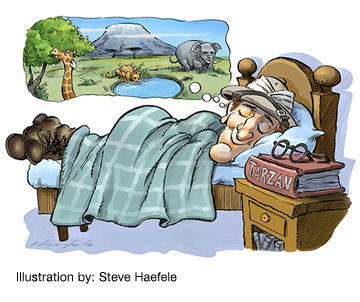 Dreams of Travel
Dreams of Travel
There is a third component of the travel experience that’s perhaps less acknowledged. That is the lead-up to the trip, the planning, dreaming, hoping, imagining and fantasizing that are part of almost any trip. The anticipatory phase is also a major part of the value of travel.
A memory may last from the moment of the experience itself until the end of your life. But anticipation may last even longer. For example, take Africa.
I can’t remember when I first thought of lions, elephants, giraffes and all the fantastic animals of Africa. They seem to have populated my imagination from the beginning, as if the images were implanted in my imagination via what Carl Jung called the collective unconscious. I had those images in my imagination from a very young age.
Those would have been the earliest glimmers of my aspirations to travel to Africa. They burned in me my whole life until I finally went there many years after I had accepted the notion that I would probably never fulfill that dream.
As a kid I inherited from my father a well-worn copy of the book Tarzan of the Apes by Edgar Rice Burroughs. It was the story of a human baby orphaned in the African jungle and adopted by an ape mother that raised him as her own child.
That book captured my imagination as powerfully as anything ever on the crowded canvas of my youthful imagination. I read it over and over. I lived another life in an alternate reality through that book.
The jungle portrayed was a fantasy of an American who had never been to Africa and knew little more about it than he had read in a single book. But it became the scene for an archetypal wilderness adventure story.
It planted a burning urge in me to travel to Africa. Through popular music I began to see the powerful influence of Africa on American culture dating from the earliest European colonies.
My fascination built to where the dream had to be fulfilled, no matter that it was a long way away. Africa became more accessible and I finally made my dream come true.
When I got to the real Africa it brought all the previous thoughts, impressions and feelings from my whole life rushing back. They all fed into the long lead-up to my trip to Africa, and to my enjoyment when I got there. The trip was the culmination of a lifetime of anticipation.
Uniting the Present and the Past
Something similar happened in all the iconic places I knew from movies and books before I saw them in person. The Empire State Building in New York, Tower Bridge in London, the Eiffel Tower in Paris, the Taj Mahal in India all resonate so powerfully in the imagination before you ever see them that when you do it’s like reality is screaming.
The image explodes out of your imagination and stands there before you in three-dimensional, full-color splendor. It’s the physical manifestation of an image you may have carried inside for many years.
Planning, dreaming and anticipation constitute much of the enrichment of traveling and what makes a trip successful and fulfilling.
The dreaming and wishing are the soul of the experience, but there must also be a practical element. Planning can make the difference between a successful, satisfying trip and a dud. It doesn’t all necessarily fall into place perfectly on its own. It takes a lot of planning to make the most of a trip.
Just because you are traveling to an “iconic travel destination” doesn’t guarantee that you’ll have a great time there. I know from experience that it’s possible to have a terrible time in a great place. Even in the greatest places, things can go wrong. You are likely to hit obstacles and problems you don’t expect.
The novelty of being in a new place, constantly surprised and open to the unexpected, is much of the thrill of travel as long as the unexpected doesn’t veer too far off the path of safety and pleasure.
The better you plan your trip, the better your trip will be. Spontaneity is a priceless part of travel, but if it’s all spontaneity it can get pretty dull. It’s easy to miss all the things you really ought to experience in a place if you don’t know where to go. That’s why I always make full use of professional guidance and planning. I always want to have a friend at the destination to show me around.
It takes planning to create a structure that will transform your anticipation into reality. But though it’s a necessity, planning is not just a chore. It’s a labor of love, and the dreaminess of making plans weaves in and out with the reality you experience when you get there. If the possibilities are well considered and weighed, you won’t have to leave feeling you didn’t really get the place.
Travel Visions at Home
Since 2020 has become the year of COVID, and practically no travel, it’s a good time to explore the pre-travel component of the travel experience. There is no limit to how much you can pour into the planning and dreaming about a trip before you take it. And all of that can enrich the experience itself.
There is research that shows how much you can expand your enjoyment and even your health through anticipation of a trip.
An article in Psychology Today presented a number of studies that showed that beyond the benefits of travel, planning itself has significant benefits.
A study from the Netherlands showed that “vacations do improve happiness, but those improvements fade within a few weeks.” But it also showed that “the act of planning a vacation yields a much larger boost in happiness – up to eight additional weeks of improved moods in anticipating the vacation.”
So there’s the science, here’s the math. Your two-week vacation will improve your health and mood for the two weeks of the vacation and a few weeks afterward. But anticipating the vacation can give you as much as eight more weeks of the benefits to your health and happiness. For me it’s much more than eight weeks. It stretches out over a lifetime.
Do with that as you will.
Your Humble Reporter,
A. Colin Treadwell
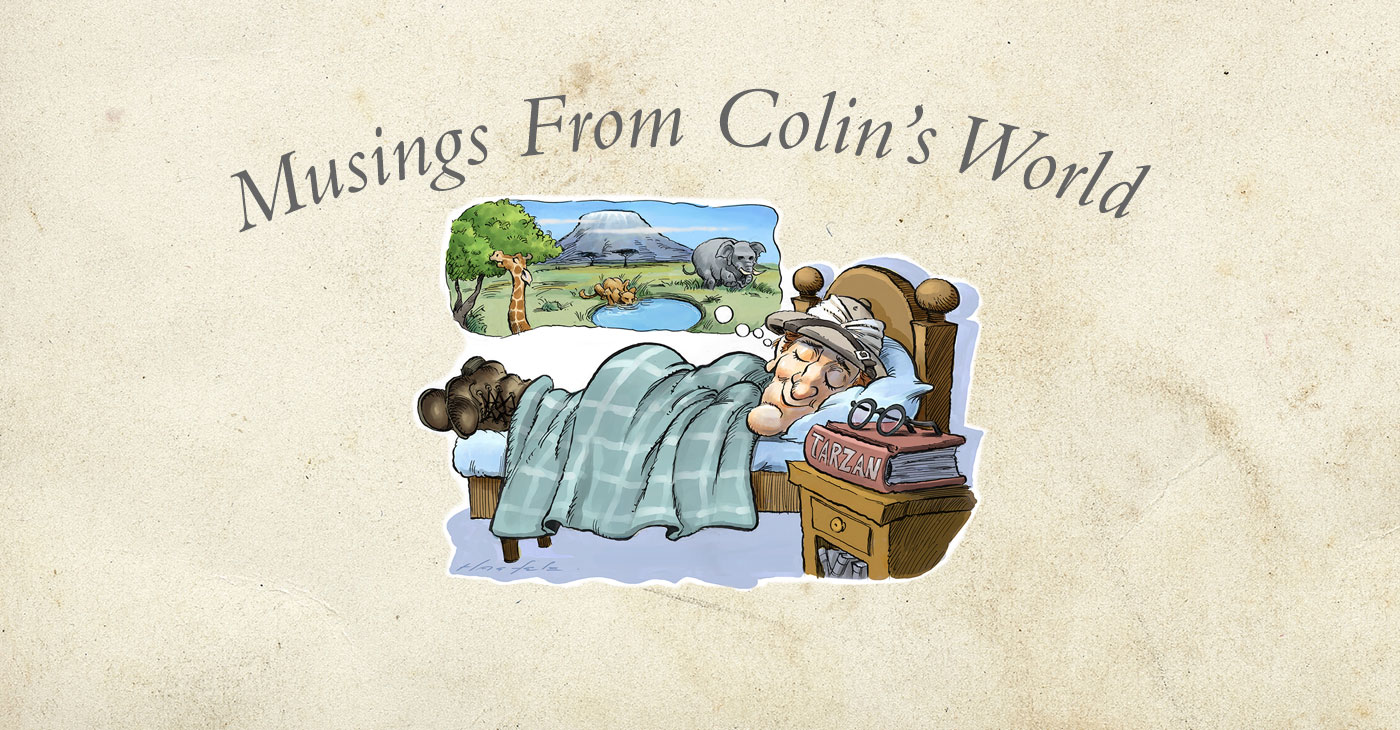
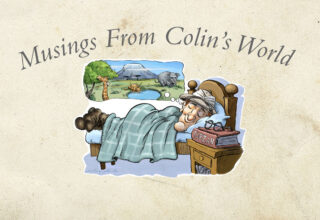
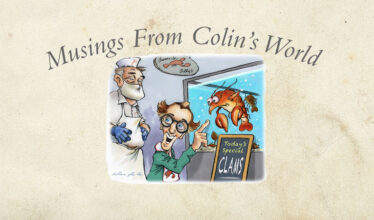
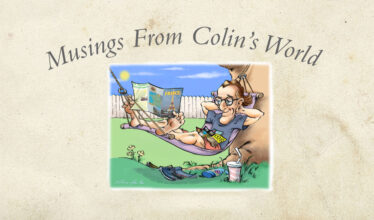
I have always loved the planning of an adventure almost as much as the trip.
Especially this year of covid. Hoping 4 5 months in middle Italy in the spring. May not realistically get to go ,but am keeping happy drooling over maps and talking to ex-pats where i have rented half a farm house.
Thanks for re-enforcing the enjoyment of planning!
D